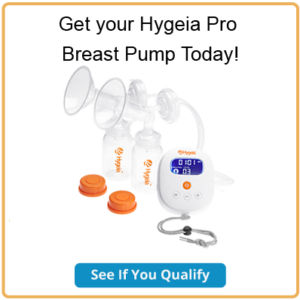I long ago realized that this breastfeeding thing…this thing that is supposed to be natural and perfect and make the heavens open up and the angels sing…sometimes, it really sucks (pun intended). By the time most moms contact me as an International Board Certified Lactation Consultant (IBCLC), breastfeeding has become a snowball of frustration, hopelessness, and pain. We have to quickly get to the “nitty-gritty” of the challenges, and often those challenges are a knotted up mess that requires careful and meticulous unwinding, untying, and untangling.
Sometime, that untangling includes tools. As lactation consultants, we’ve got tools that will protect your nipples, tools that will draw out your milk, and tools to get that milk into the baby. Sometimes, the tool we need is called an “At the Breast Supplementer”. These tools are used by all kinds of mothers: those who are breastfeeding adopted children, those who have physical challenges that inhibit their ability to make the milk required by their baby, and those with who are jumping over breastfeeding hurdles at the beginning of a breastfeeding relationship. These supplementers are even used by a number of transgendered parents who are breastfeeding their children.
There are many different supplementers on the market (Hygeia sells one intended for short-term use). They all involve two basic parts: a container to hold the supplement (whether that be pumped or donated breast milk or formula) and a tube to get it to the baby’s mouth. The container is held somewhere close to the mother’s body and the tube is inserted into the baby’s mouth while they are attached to the breast. This allows the baby to both feed from the mother’s breast and take in the additional supplement at the same time. Allowing a baby to receive whatever supplementation they require AT THE BREAST not only increases stimulation to the mother’s breast (and thus, can have a positive impact on her milk supply) and allows the baby to associate the act of breastfeeding with feelings of being satiated, but it also allows for the mother and baby to BREASTFEED, even while they are working through some challenges.
Please don’t get me wrong. A supplementer like this can be the thing that SAVES a breastfeeding relationship. But, it can also be a constant reminder that thing have not gone the way we hoped. For many women, using a supplementer moves from a “short term fix” to a “long term solution”. I recently sought the insight and advice from mothers who have used supplementers long-term. Many of these women have been diagnosed with Insufficient Glandular Tissue (IGT) and, despite heroic efforts, their bodies will never produce the amount of milk required by their babies. I asked them what one thing they wish someone would have told them about supplementers before trying one. Here is what they said:
- I wish someone had told me that wanting to throw it across the room is normal.
- I wish someone had told me to cover it with plastic to keep the tears off!
- I wish someone had told me that there are many variations of the device, from DIY versions (bottle and feeding tube) to fancy versions that cost lots of money.
- I wish someone had told me to be patient as there was a LONG learning curve.
- I wish that I’d known that as difficult as it seemed that it would get easier as baby & I got used to it.
- I wish I had know that I should have an IBCLC help me with it initially. I got so frustrated trying to figure it out on my own that I wanted to give up.
- I wish someone had told me that the most important thing is to find your own way and to try different things until you get the hang of it YOUR OWN WAY.
For most of us, being able to breastfeed directly at our breast is what we most desire. This goal is attainable for many women through the use, either temporarily or longer-term, of “At the Breast Supplementers”. If you are struggling and wonder if such a tool would be helpful to you, please contact your local International Board Certified Lactation Consultant (IBCLC) or breastfeeding volunteer for help and support.


